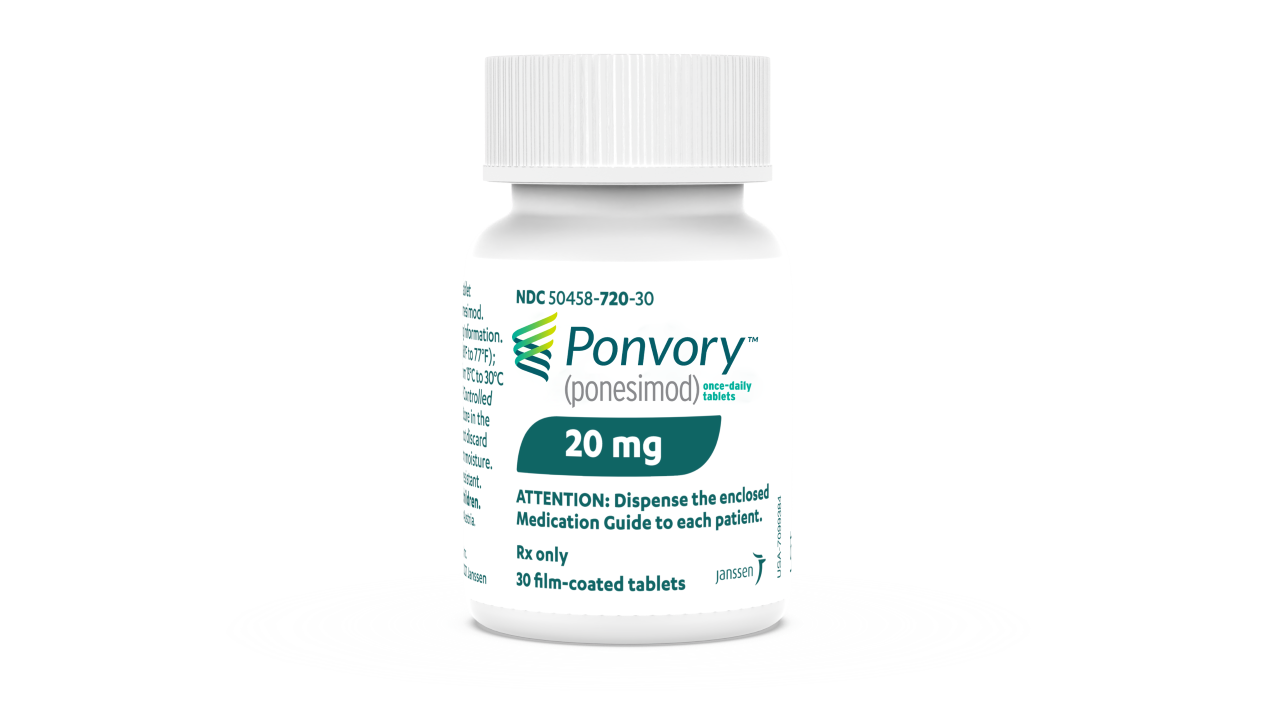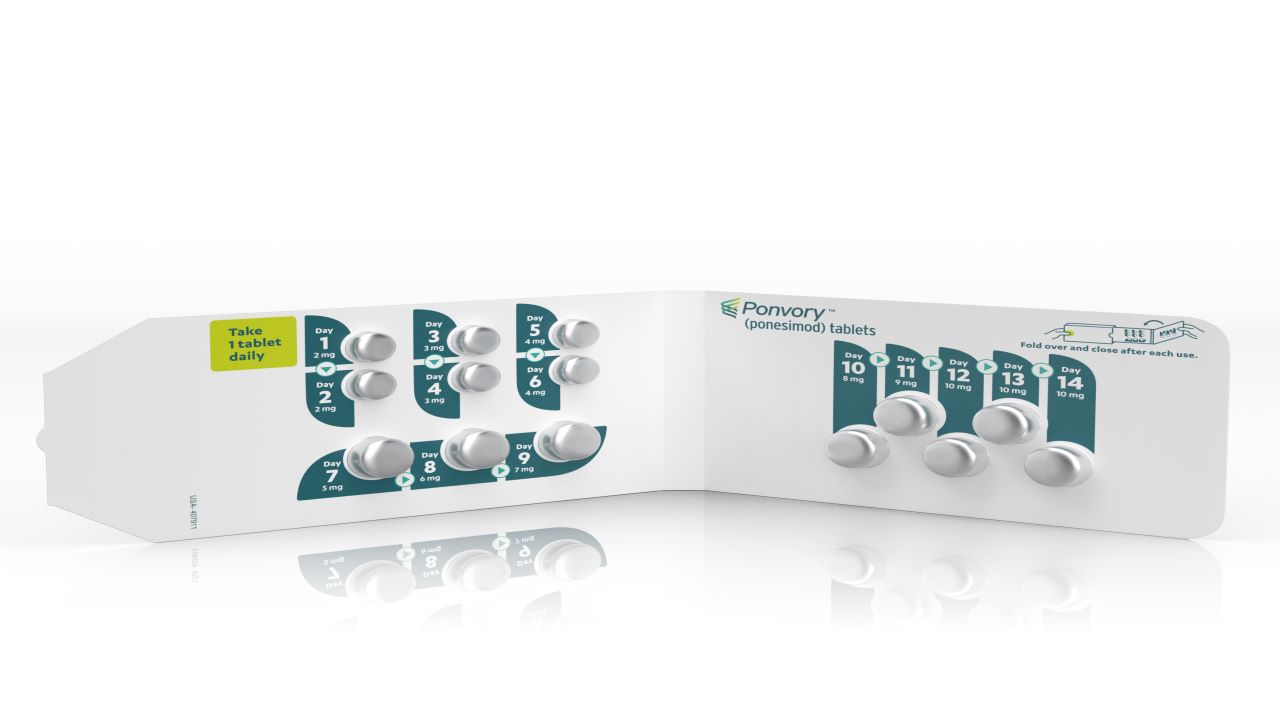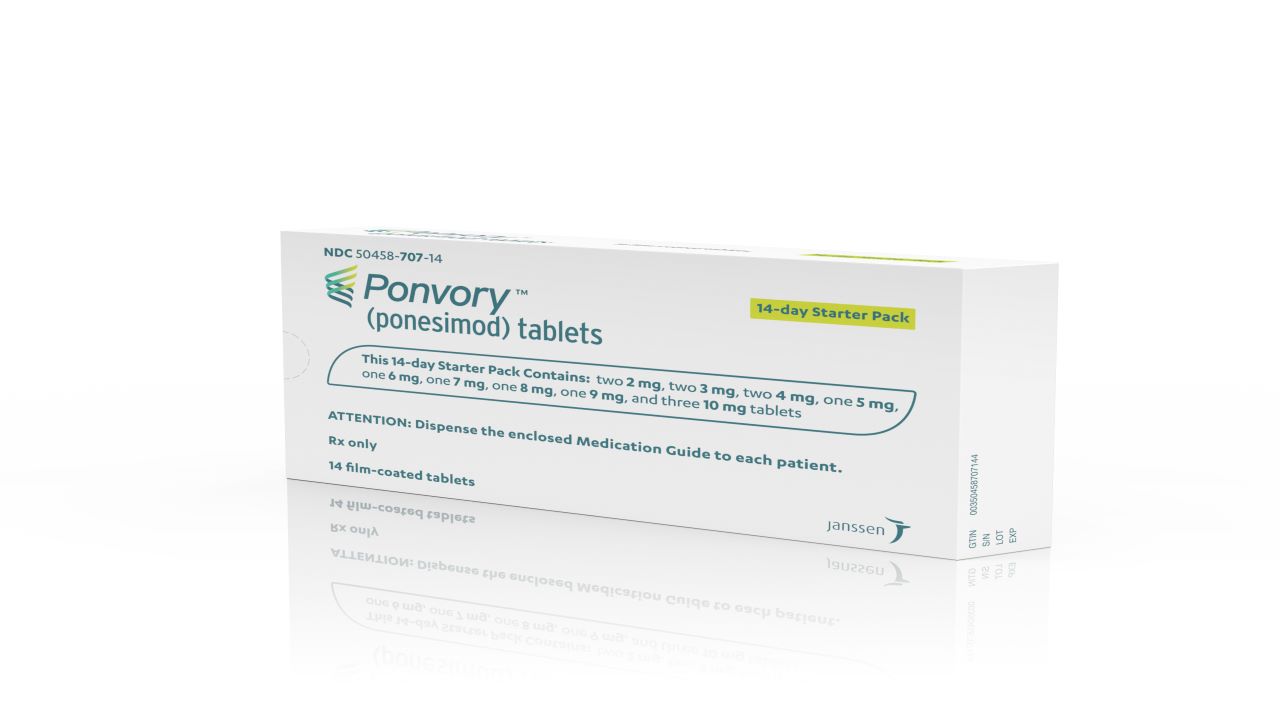PONVORY™ (ponesimod) is an oral disease-modifying therapy approved for the treatment of adult patients with relapsing forms of multiple sclerosis (MS).
In 2017, Actelion Pharmaceuticals, a member of Janssen Pharmaceutical Companies of Johnson & Johnson’s (JNJ), reached a revenue-sharing agreement with Idorsia Pharmaceuticals. The agreement allows Idorsia to receive quarterly payments of 8% of the net sales of ponesimod products per quarter.
PONVORY is available as biconvex, round, film-coated tablets in 2mg, 3mg, 4mg, 5mg, 6mg, 7mg, 8mg, 9mg, 10mg and 20mg dosage strengths for oral administration.
PONVORY approvals
In March 2020, Janssen, the pharmaceutical subsidiary of Johnson & Johnson, submitted a new drug application (NDA) for ponesimod to the US Food and Drug Administration (FDA).
In March 2021, the US FDA approved PONVORY (ponesimod) as a treatment for MS to help reduce relapses and brain lesions in adult patients.
The FDA approval also includes clinically isolated syndrome, relapsing-remitting disease and active secondary progressive disease.
In March 2020, Janssen submitted a marketing authorisation application (MAA) for ponesimod to the European Medicines Agency (EMA).
In March 2021, the company received a positive opinion from the EMA’s Committee for Medicinal Products for Human Use (CHMP) for ponesimod to treat adult patients with relapsing MS with active disease defined by clinical or imaging features.
Multiple sclerosis causes and symptoms
MS is a chronic autoimmune inflammatory disorder that affects the central nervous system (CNS). In MS patients, the immune system damages the protective myelin sheath, which protects the nerve fibres, resulting in inflammation.
The exact aetiology of MS is unknown, but the inflammation caused due to MS disrupts the communication processes between the CNS and the rest of the body, thereby triggering the neurological signs and symptoms of MS.
Common symptoms include fatigue, vision problems, balance and walking problems, numbness or tingling, dizziness and vertigo, bladder and bowel problems and physical weakness.
MS is classified into four types, namely clinically isolated syndrome (CIS), relapse-remitting MS (RRMS), primary progressive MS (PPMS) and secondary progressive MS (SPMS).
PONVORY mechanism of action
PONVORY is a once-daily oral selective sphingosine-1-phosphate receptor 1 (S1P1) modulator that binds with high affinity to S1P1.
Ponesimod traps lymphocytes in the lymph nodes and keeps them out of the blood. The mode by which ponesimod executes its therapeutic action in MS is not known, but it may help reduce migration of lymphocytes into the CNS.
Clinical trials on PONVORY
The FDA approval of PONVORY was partially based on Oral Ponesimod Versus Teriflunomide In Relapsing Multiple Sclerosis (OPTIMUM) phase three clinical trial, in which PONVORY demonstrated superior efficacy in significantly reducing annual relapses compared to teriflunomide, another oral MS therapy.
OPTIMUM is a two-year, head-to-head, prospective, multicentre, randomised, double-blind clinical trial. It enrolled 1,133 participants to evaluate the efficacy, safety and tolerability of PONVORY 20mg compared to teriflunomide (Aubagio) 14mg in adult patients with relapsing MS.
The primary endpoint from baseline through the study period was the annualised relapse rate (ARR). In the study, PONVORY 20mg showed superior efficacy in significantly lowering annual relapses by 30.5% in patients with relapsing MS compared to teriflunomide (Aubagio) 14mg. In addition, 71% of patients treated with PONVORY reported no confirmed relapses, as compared to 61% of Aubagio-treated participants.
The study included additional efficacy endpoints such as the number of new gadolinium-enhancing (GdE) T1 lesions and the number of new or enlarging T2 lesions. PONVORY showed superiority in reducing the number of new GdE T1 lesions by 59% and the number of new or enlarging T2 lesions by 56% compared to teriflunomide.
In addition, nine in ten PONVORY-treated subjects have not exhibited deterioration of the three-month disability and the treatment demonstrated a numerical benefit in delaying disability progression.
In multiple clinical studies spanning more than ten years, PONVORY exhibited a proven safety profile and was generally well-tolerated. The most frequent adverse events reported in PONVORY-treated patients during the trial include upper respiratory infection, hepatic transaminase elevation (abnormal liver tests) and hypertension.





